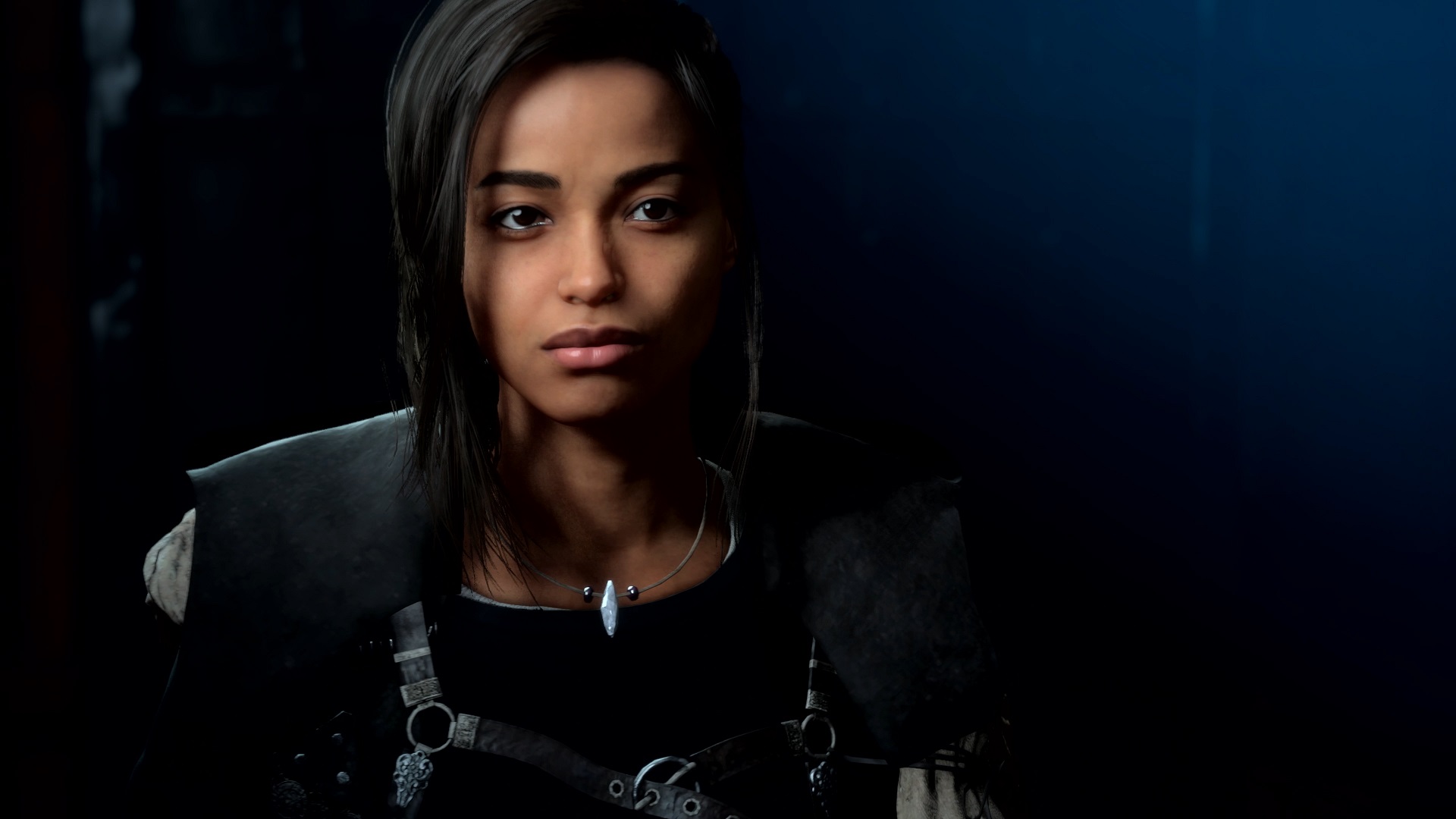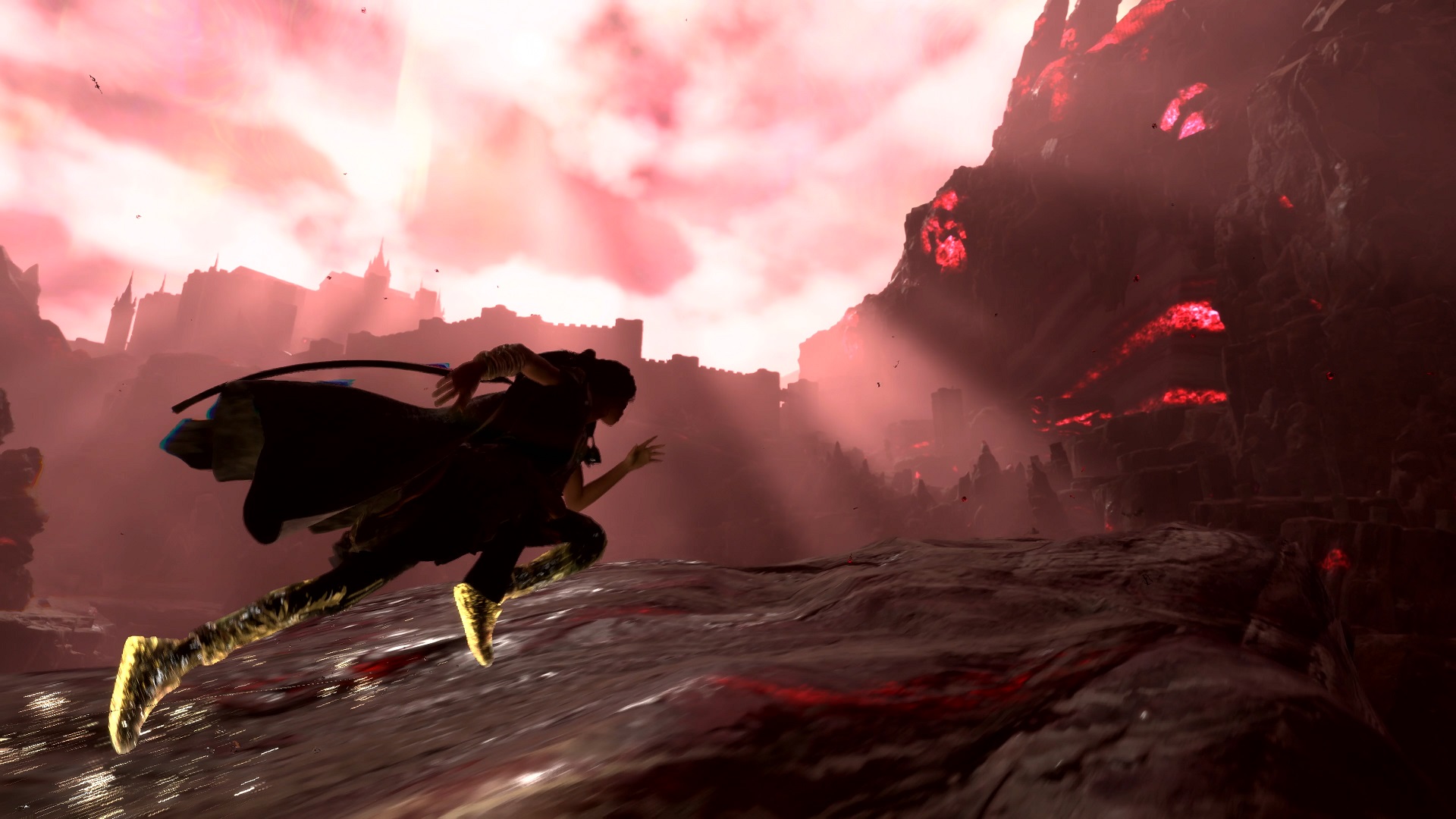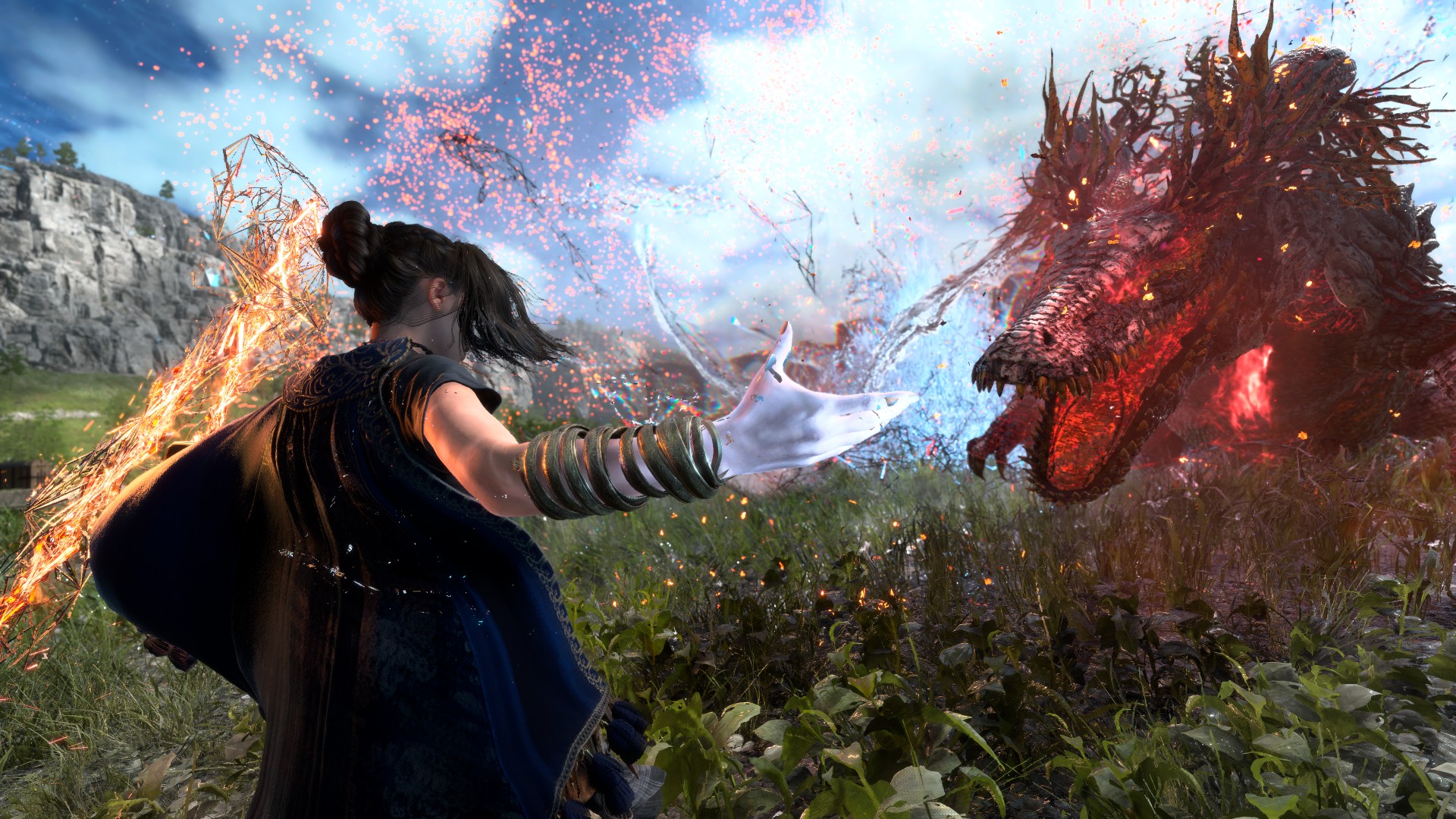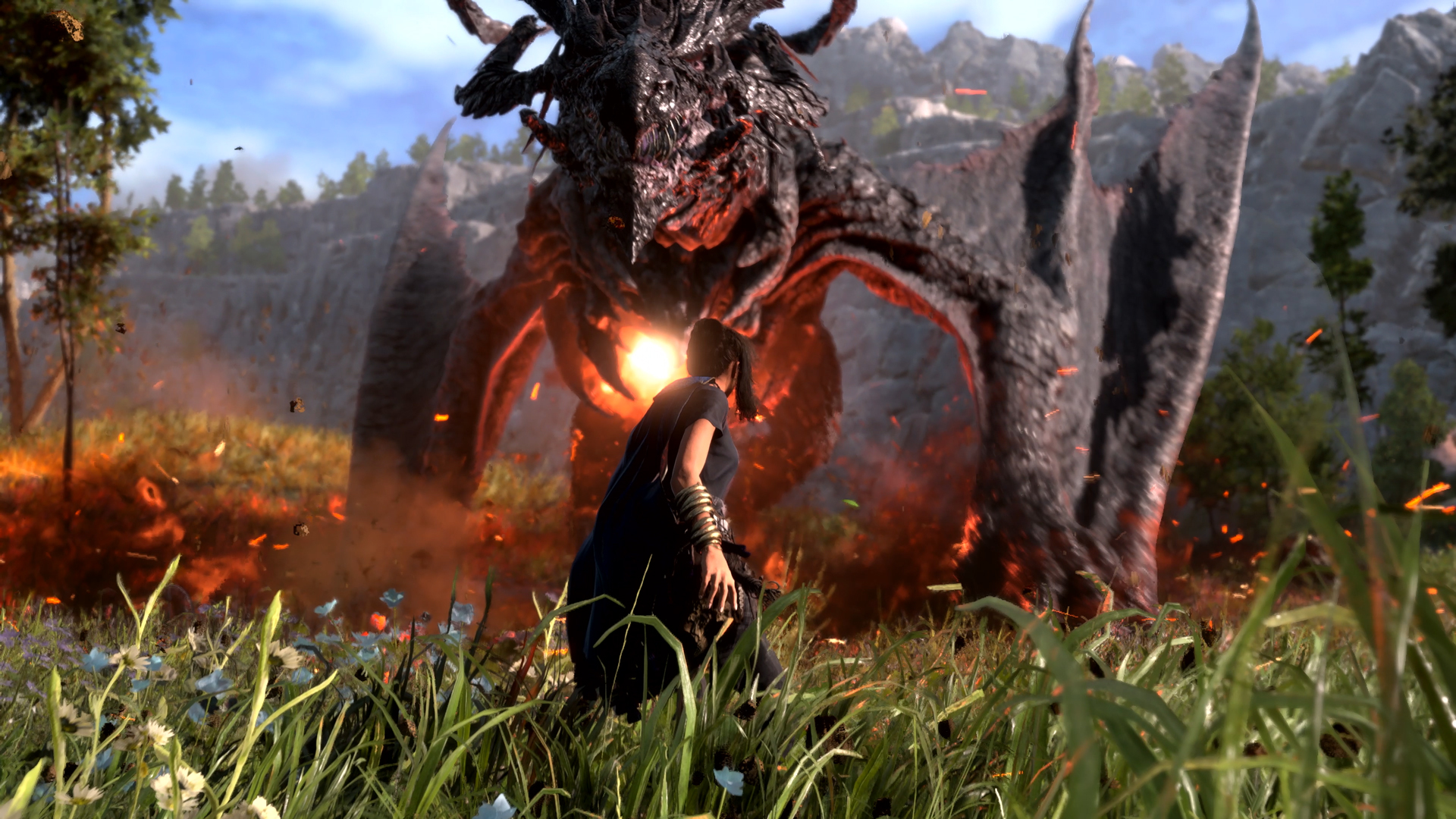GamesRadar+ Verdict
Forspoken shines brightest when its protagonist is dipping, ducking, and diving along the generally striking world of Athia while casting a variety of spells, but the standard fish-out-of-water fantasy story of Frey only subtracts from the experience.
Pros
- +
The parkour really does feel magical
- +
The accessibility options are broad and varied
- +
The spells feel genuinely impactful
Cons
- -
A proper noun-heavy, uncompelling story
- -
Inconsistent pacing both narratively and mechanically
- -
Some particularly rough animation during cutscenes
Why you can trust GamesRadar+
The much-delayed Forspoken unfortunately might have still needed a bit more time in development, as the delivered experience makes for a rough adventure. There are some impressive mechanics buried somewhere deep within Forspoken, but they're too often swallowed up by classic open-world chaff, a lackluster narrative, and at-times dreadful animation. The promise of effortlessly juggling a number of different spells, all while jumping around an attractive fantasy landscape, is held back by the unfortunate reality of what that's actually like; a lovely dream that isn't quite held up by its implementation.

Release date: January 24, 2023
Platform(s): PS5, PC
Developer: Luminous Productions
Publisher: Square Enix
While much noise has been made about Forspoken's narrative – which includes contributions from Gary Whitta (screenwriter of Rogue One: A Star Wars Story), and Amy Hennig (creative director of the Uncharted franchise) – the game is underpinned by a number of standard RPG tropes. Protagonist Frey Holland, an orphan from New York, is whisked away to the fantasy land of Athia through a magical portal after unintentionally finding herself as the bearer of a sentient bracelet, Cuff, that absolutely will not shut up. Upon arrival, she discovers that the world is in a bad way, with the corruptive Break spreading throughout, and the last remnants of humanity living in the single Break-free city of Cipal.
Enter Frey, who can mysteriously survive in the Break and also use magic. She rather reluctantly comes to help the people of Cipal for what are admittedly quite selfish reasons. First and foremost, she wants to go home, and the initial set of NPCs point her in the direction of some enemies to fight. But then things get complicated, and there are more enemies to fight, and that gets further complicated, and so on and so forth until you're done roughly 22 hours later.
That said, the critical path in Forspoken is just one small slice of what the game actually has to offer. The ruins of Athia are littered with different landmarks to find equipment like cloaks or necklaces, monuments to cat familiars and Athia's magical rulers the Tantas, Break-corrupted infestations to clear out, abandoned guilds to explore, and much, much more. At no point did it feel like I ever moved out of being within a clear line of sight of something to do on the map, which is both a blessing and a curse depending on your level of investment in the world.
The spell is broken

It's been clear from the moment Forspoken was revealed that a major selling point would be the magical parkour, offering Frey the ability to traverse the world of Athia swiftly and without much trouble. In practice, this largely bears out, and scooting across and over the landscape is just as satisfying as it looked in the promotional videos. And Forspoken's feeling of density is only further exacerbated by using stamina to quickly and effortlessly zoom about – Frey's movement is initially limited by the relatively small pool of available stamina, though the resource gradually expands throughout the adventure.
The various detours and map markers are a good example of the issue that Forspoken has in its magic system, too; there's just so much there, but only a fraction of it is actually necessary. The problem with Forspoken's relatively massive library of magical spells is twofold. Picking and choosing which spells to invest in can be a bit of a headache, and the vast majority of them become available so late in the game that there's essentially no impetus to even bother doing so – save for a cursory exploration in order to make use of enemies' vulnerabilities.
Despite spending mana – which can be gained through both leveling up, or simply passing through a font of mana out in the wild – on spells from all the different elemental schools regularly and with gusto, I found that I rarely felt the need to mix things up beyond shifting between the different "schools" of spells. There are essentially four types of spells – support, attack, surge, and purely utility – and I can count on one hand the number of times I felt compelled to actually change a support spell to something else instead of simply shifting to a different element altogether.

"Barring a few rare setpieces, Forspoken seems to prefer to tell rather than show"
Forspoken's mistake here seems to be confusing the technical limitations inherent to providing so many options with meaningful choice. Both mechanically and narratively, I cannot think of a single meaningful choice I had to make beyond where to spend my time – after initially doing quite a bit of exploring all the nooks and crannies of Athia, I chose to focus my attention instead on the main quest and only the main quest.
It's just unfortunate that said main quest is so dull. Barring a few rare setpieces, Forspoken seems to prefer to tell rather than show with one particularly egregious sequence later in the game devoted to revealing exactly what's been going on in full, lest there be any misunderstanding. Even taking Forspoken on its own terms, for what it actually does rather than what I would have preferred, it came across as an exposition dump at the conclusion of a plot that didn't exactly endear me to Frey or Cuff, the two characters that get the most lines of anyone.
The kindest thing I can say about Forspoken is that it is aggressively fine. The good and bad parts are roughly equal such that it comes to be, in summation, an exceptionally middling experience. The magical parkour is exhilarating, but not really backed up by significance when you get to where you're going, and while half the game might have you moving from place to place, the other half is what you do when you arrive. The wide variety of spells is appreciated, but there's basically no reason to bother beyond a few favorites. Forspoken wants to be a game about hope and choice and community, and it's willing to hit you over the head with those themes explicitly to make sure it gets across though it never manages to instill them organically, which is a shame.
Forspoken was reviewed on PS5, with code provided by Square Enix.
More info
| Genre | Action RPG |

Rollin is the US Managing Editor at GamesRadar+. With over 16 years of online journalism experience, Rollin has helped provide coverage of gaming and entertainment for brands like IGN, Inverse, ComicBook.com, and more. While he has approximate knowledge of many things, his work often has a focus on RPGs and animation in addition to franchises like Pokemon and Dragon Age. In his spare time, Rollin likes to import Valkyria Chronicles merch and watch anime.



